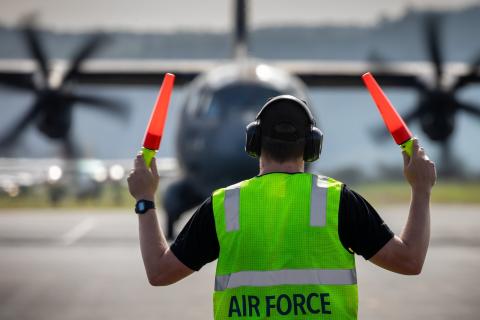Today’s AUSMIN could hardly be better timed, following recent terrorist attacks, North Korean nuclear provocations, and the weekend’s Shangri-La dialogue. But, as is so often the case with AUSMIN, the danger is the urgent will crowd out the important.
Both Australia and the US find it easier to discuss the Middle East than Asia. Australia has few distinct interests in Afghanistan, Iraq or Syria, vis-à-vis the United States. Yet as important as terrorism, Afghanistan and ISIS might be, the clear risk is that Asia receives inadequate attention today.
Australia and the US have very different interests with China and Indonesia. If the alliance is to be tested in coming decades it will likely be in Asia, so it is critical that regional issues receive top billing.
Above all else, Julie Bishop and Marise Payne should seek clarity on the Trump Administration’s Asia policy.
This year’s AUSMIN will be a success if the two sides meaningfully work towards a shared strategic concept for Australia’s Indo-Pacific region. That means addressing tough questions about the role of China. It will invariably be a difficult conversation – the more hawkish types in the US have long thought Australia was somewhat ‘soft’ on China and called for Canberra to muscle up.
Yet the Australian public unequivocally believes the US is in decline. New research released by the US Studies Centre shows that that 72% of Australians already view China as the most influential country in the Indo-Pacific region, while more than half of Australians (62%) perceive the US influence in the next five years as negative under President Trump.
Economically, Australia and the US need to come up with a shared regional trade agenda. Both Tillerson and Mattis are pro-trade – Tillerson is a former ExxonMobil chief executive – so the conversation will probably revolve around what sort of trade policies are possible under President Trump.
A summary of over 20 years of AUSMINs shows that every year since 2011, Australia and the US declared their intent to conclude the TPP – that evidently will not happen this year. But the two sides should nonetheless be able to come up with positive steps on regional trade, which would fit within the well-established AUSMIN pattern of announcing co-operation on economic and trade issues.
Australia will also lobby the US to remain diplomatically engaged in Asia.The Trump Administration recently proposed a 30% cut to the State Department’s budget, which is yet to be considered by Congress, but there are worrying indications that the President’s preference for hard power will result in a ‘khakhi heavy’ approach to the region.
And North Korea will receive plenty of attention. Its continuing missile tests and provocations are the most pressing regional priority and the foremost Asia issue for the Trump Administration. The US military has just conducted a highly advanced missile defence test in California, and the Chairman of the House Armed Services Committee recently proposed a bill that would appropriate funds for joint ballistic missile defence exercises between the Australia, Japan, South Korea and the United States next year. Meanwhile the US navy has two aircraft carriers exercising with Japanese forces near the Korean peninsula.
Finally, the agenda should not ignore South-East Asia, which will invariably receive less attention from President Trump than President Obama.
In addition to the range of global challenges, this year’s AUSMIN is particularly important because it comes almost two years after then Secretary of State John Kerry hosted Bishop and Payne in Boston in 2015, and will be Australia’s most substantive high-level engagement with the Trump Administration. While Prime Minister Turnbull’s meetings with both President Trump in New York and Vice-President Mike Pence in Sydney were relatively short, get-to-know-you affairs, AUSMIN puts Australian ministers in front of their counterparts for a day.
Australia is well placed with both the Secretaries of State and Defense, each of whom knows this country well from previous roles in the private sector and the military, respectively. But the key question – as is always the case with the Trump Administration – is whether Australian overtures to Tillerson and Mattis will inform President Trump’s decision making.

